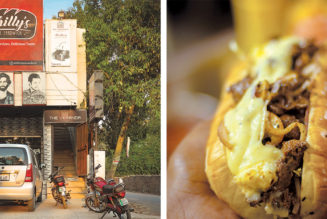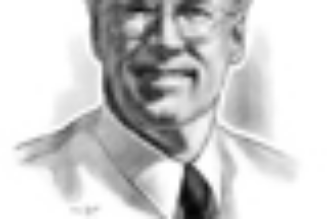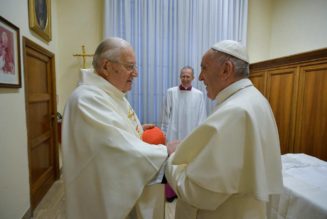Someone recently remarked that with two popes living and a pandemic raging throughout the known world, we now know what it feels like to have lived in the 14th century.
While it might make for a cute internet meme, the comparison has a lot of holes in it.
Nevertheless, with so much division in contemporary societies, wars percolating in several parts of the world, geopolitical rumblings, more and more people facing starvation, age-old beliefs being called into question, and civil liberties under pressure everywhere in the globe, some people feel there has never been a time in history when things feel so fragile.
Reading history is a good antidote to that feeling — an exercise that assures us that our world has been through much of the same in the past.
The same applies to the Church. It’s true that there is more and more secularism and less faith in many societies. One might be tempted to think that in a generation or two, Christianity will be a minority religion in the world.
“Christendom has had a series of revolutions and in each one of them Christianity has died,” G.K. Chesterton wrote in The Everlasting Man. “Christianity has died many times and risen again; for it had a God who knew the way out of the grave.”
That historical perspective is worth much more than a hundred attempts to explain what’s happening today through contrived theories.
But when you’re dealing with 2,000 years of Christian history, who but the most dedicated of historians has time to read even a fraction of the volumes and volumes on the history of the Church?
If you’re not quite sure where to begin, we have a little guide for you. We’ve reached out to a number of historians and Catholic thinkers with the question, “If you could recommend just one book, what would you say is the best work on Church history?”
While considering this list, it’s good to bear in mind a caveat that one of our sources pointed out.
“After 30 years of teaching Church history, I have concluded that there is no good single-volume history of the Church that is suitable for the general reader,” said Dominican Fr. Augustine Thompson, Professor of History at the Dominican School of Philosophy and Theology in Berkeley, California. “There are many good books on specific aspects of Church history. For example, Eamon Duffy’s Saints and Sinners on the papacy. Or Knowles and Obolensky’s volume The Middle Ages in the old series ‘The Christian Centuries.’”
But all the one-volume histories have two problems, Fr. Thompson said. “One seems the case for all of them: except for the small period and place the author is an expert on, they are written from dated and flawed secondary literature. The second problem is that they too often have an ideological axe to grind. That is to say, they were written to forward some political or theological project in the contemporary Church favored by the author.”
History of the Church, by Hubert Jedin and John P. Dolan
That said, Fr. Thompson adds that the only Church history that he knows of that does not have those problems is Jedin and Dolan’s History of the Church. But, he said, “it is really an academic handbook and is in 11 volumes.”
Reformations, by Carlos Eire
For a more narrowly focused study, though, Thompson has high praise for a work by Carlos Eire, Professor of history and religion at Yale University. “Eire, whom most know as the author of his autobiographical Waiting for Snow in Havana, is also among the most distinguished of early modern historians. His Reformations reflects the revolution in Reformation scholarship: rejecting the linear trajectory of ‘The Reformation’ as a rejection of ‘Church corruption’ and return to the Scriptures, running directly from Erasmus, to Luther, and on to Calvin. Eire shows there were many ‘reformations,’ that they began in fifteenth-century Spain, and that the process was in no way linear, but confusing, contradictory, and often imposed by the state rather than a natural religious development.”
History of the Catholic Church, by James Hitchcock
This work is “Hitchcock at his most insightful and balanced,” said Fr. George Rutler, a New York pastor who himself has authored a number of books. George Weigel, the biographer of Pope St. John Paul II, called it “the best overview.”
A Popular History of the Church, by Philip Hughes
Fr. Peter M.J. Stravinskas, president of the Catholic Education Foundation, calls this “an ideal starting place for beginners.” Fr. Rutler adds that it is ”very readable and takes us up to the modern period. He is extremely fair and judicious.”
A Dictionary of Popes, by J.N.D. Kelly and Michael Walsh
This work is “the gold standard among papal histories,” said George Weigel, Distinguished Senior Fellow and William E. Simon Chair in Catholic Studies of the Ethics and Public Policy Center.
Earthly Powers and Sacred Causes, by Michael Burleigh
“I would recommend companion volumes by this British historian,” said author Russell Shaw. “The first covers ‘the clash of religion and politics in Europe’ (that’s from the subtitle) from the French Revolution to World War I, while the second carries the story from World War I to very nearly the present. While the books have to do with ‘religion’ in general, the Catholic Church is necessarily at the center of the narrative. Burleigh writes clearly, the books are full of fascinating information, and the author takes a generally friendly view of the Church.”
Religion and the Rise of Western Culture, by Christopher Dawson
William Doino Jr., a frequent contributor to First Things magazine, commented, “It’s indispensable for Catholics to read anything — as many things as you can — by the great Christopher Dawson, particularly Religion and the Rise of Western Culture and The Dynamics of World History, which is a great anthology of some of his best writing. It shows what the Catholic Church was doing to effect change throughout history. Religion and the Rise of Western Culture shows the indispensable role the Catholic Church had in the rise of the West and Western civilization.
Fr. Stravinskas adds that Dawson’s The Formation of Christendom is a “superb history, with keen insights to events.”









